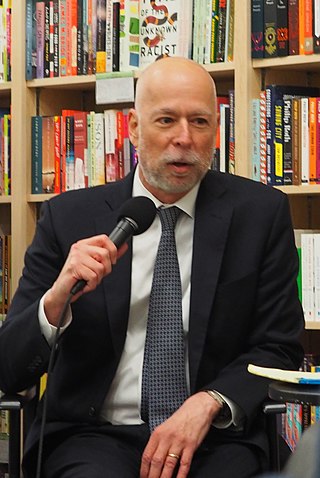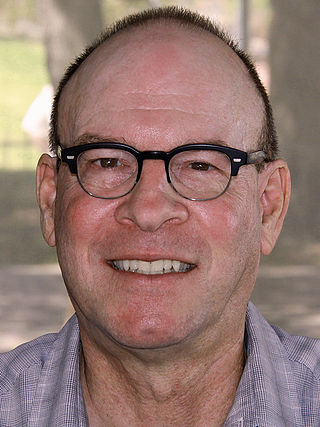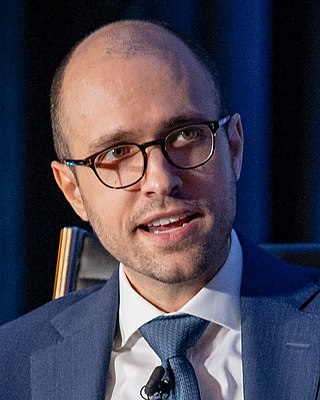
Lolita Shante Gooden, better known by her stage name Roxanne Shante, is an American rapper. Born and raised in the Queensbridge Projects of Queens, New York City. Shante first gained attention through the Roxanne Wars and was part of the Juice Crew. The 2017 film, Roxanne Roxanne, is a dramatization of Shante's life.
Jayson Thomas Blair is an American former journalist who worked for The New York Times. He resigned from the newspaper in May 2003 in the wake of the discovery of fabrication and plagiarism in his stories.

Copy editing is the process of revising written material ("copy") to improve readability and fitness, as well as ensuring that a text is free of grammatical and factual errors. The Chicago Manual of Style states that manuscript editing encompasses "simple mechanical corrections through sentence-level interventions to substantial remedial work on literary style and clarity, disorganized passages, baggy prose, muddled tables and figures, and the like ". In the context of print publication, copy editing is done before typesetting and again before proofreading. Outside traditional book and journal publishing, the term "copy editing" is used more broadly, and is sometimes referred to as proofreading; the term sometimes encompasses additional tasks.

A typographical error, also called a misprint, is a mistake made in the typing of printed or electronic material. Historically, this referred to mistakes in manual typesetting. Technically, the term includes errors due to mechanical failure or slips of the hand or finger, but excludes errors of ignorance, such as spelling errors, or changing and misuse of words such as "than" and "then". Before the arrival of printing, the copyist's mistake or scribal error was the equivalent for manuscripts. Most typos involve simple duplication, omission, transposition, or substitution of a small number of characters.
A public editor is a position existing at some news publications; the person holding this position is responsible for supervising the implementation of proper journalism ethics at that publication. These responsibilities include identifying and examining critical errors or omissions, and acting as a liaison to the public. Most commonly, public editors perform this work through a regular feature on a newspaper's editorial page. Because public editors are generally employees of the very newspaper they're criticizing, it may appear as though there is a possibility for bias. However, a newspaper with a high standard of ethics would not fire a public editor for a criticism of the paper; the act would contradict the purpose of the position and would itself be a very likely cause for public concern.
Narrative Journalism, also referred to as literary journalism, is defined as creative nonfiction that contains accurate, well-researched information. It is related to immersion journalism, where a writer follows a subject or theme for a long period of time and details an individual's experiences from a deeply personal perspective.
Marjie Lundstrom is an American journalist. She received the Pulitzer Prize for National Reporting in 1991. Lundstrom has worked for The Fort Collins Coloradoan, the Denver Monthly, and The Denver Post. She was a reporter and senior writer for The Sacramento Bee. Currently, she is the deputy editor for two nonprofit publications, FairWarning, located in Pasadena, CA, and CalMatters, based in Sacramento.

Adam Liptak is an American journalist, lawyer and instructor in law and journalism. He is the Supreme Court correspondent for The New York Times.
Muphry's law is an adage that states: "If you write anything criticizing editing or proofreading, there will be a fault of some kind in what you have written." The name is a deliberate misspelling of "Murphy's law".
Ann Marie Lipinski is a journalist and the curator of the Nieman Foundation for Journalism at Harvard. She is the former editor of the Chicago Tribune and Vice President for Civic Engagement at the University of Chicago.
Zachery "Zach" Kouwe is a communications strategist and former financial journalist. He is known for serving as a media and strategic communications advisor to corporations and financial firms including activist shareholders and institutional investors and has worked as an advisor for the corporate whistleblower attorney Jordan A. Thomas.
The Center Square, formerly Watchdog.org, is an American news website that features reporting on state and local government. It is a project of the Franklin News Foundation, a conservative online news organization. The Center Square distributes its content through a newswire service.
Ken Armstrong is a senior investigative reporter at ProPublica.
The Awl was a website about "news, ideas and obscure Internet minutiae of the day" based in New York City. Its motto was "Be Less Stupid."

Roy Peter Clark is an American writer, editor, and a writing coach. He is also senior scholar and vice president of the Poynter Institute for Media Studies, a journalism think-tank in St. Petersburg, Florida, and the founder of the National Writers Workshop. Clark has appeared on several radio and television talk shows, speaking about journalism ethics and other writing issues.
The Institute for Nonprofit News (INN) is a non-profit consortium of nonprofit journalism organizations. The organization promotes nonprofit investigative and public service journalism by supporting its members and the nonprofit news industry as a whole.

Sarah Maslin Nir is an American journalist, best known for her New York Times report on the working conditions of nail salon workers, for which she was a finalist for the 2016 Pulitzer Prize for Local Reporting. The story generated both extensive regulatory changes and extensive criticism.

Arthur Gregg Sulzberger is an American journalist serving as chairman of The New York Times Company and publisher of its flagship newspaper, The New York Times.
Philip Klein is an American author and journalist who is the editor of National Review Online. Klein previously worked as the executive editor of the Washington Examiner, as a Washington correspondent for The American Spectator, and as a financial reporter for Reuters. He become editor of the conservative publication National Review Online in March 2021.






